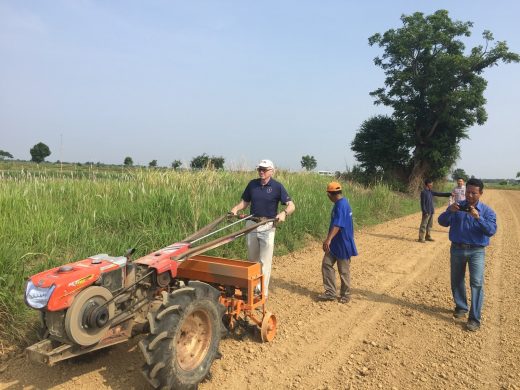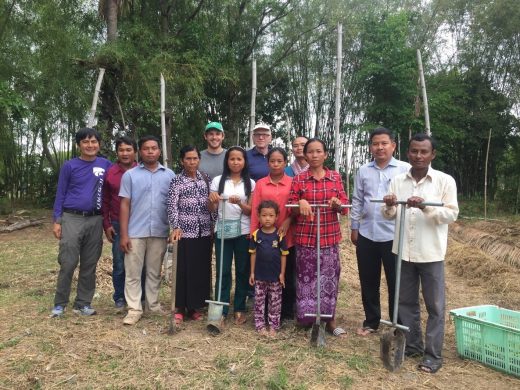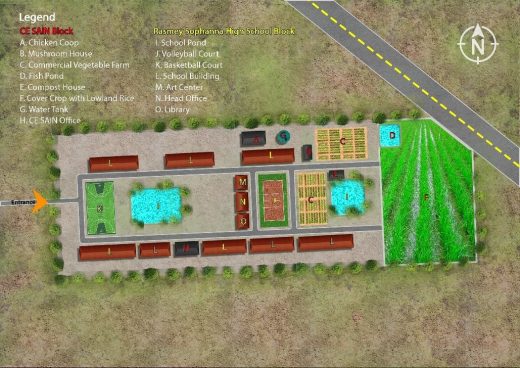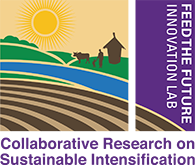All around the world, youth often aim to have a better life than their parents. For those engaged in agriculture, this sentiment is particularly true. The traditional perception of agriculture is one of subsistence, meaning that farmers only produce enough food to eat, with minimal profit. The farmers’ children recognize this and want something better. Currently, trends and attitudes see youth looking to leave the laborious farming life behind for better opportunities in other sectors. “Rural youth recently reported that access to information, lack of credit and negative perceptions around farming are the leading reasons” [IFAD, 2017]. In Cambodia, migration of young rural workers away from farms has been significant in the past 15 years and threatens to cause a future labor shortage in the agriculture industry. This creates a challenge, in Cambodia and many other countries, as a new generation of farmers is needed to achieve the global challenge of feeding a growing world population.
In Cambodia, the Appropriate Scale Mechanization Consortium (ASMC) is working to change the labor-intensive perception of farming and showcase agricultural careers as an attractive option for youth. The advances in agronomy, crop science, agribusiness, agro-engineering, agro-processing and agricultural education, agriculture has evolved into an expansive and exciting field in recent decades. An agriculture-centered life has taken on new meaning, and there is a need to expose youth to the vast opportunities available within the field.

The ASMC team believes that engaging the youth of Cambodia in sustainable agriculture is paramount to the future of farming in the country. A recent trip to Cambodia by ASMC members Dr. Alan Hansen, Dr. Manny Reyes, and Tim Rendall highlighted this mission. The visit included a tour of all Center of Excellence on Sustainable Agricultural Intensification and Nutrition (CE SAIN) Technology Parks.

Center of Excellence on Sustainable Agricultural Intensification and Nutrition (CE SAIN)
CE SAIN, established in September 2016 through funding from the USAID Mission in Cambodia, is managed by the Royal University of Agriculture (RUA) in Cambodia and the Feed the Future Sustainable Intensification Innovation Lab (SIIL). The Center’s goal is to foster private sector innovation, agricultural research, education and training, and public sector capacity building through improved collaboration and knowledge sharing that is focused on improving food and nutritional security while enhancing quality of soil, water and biodiversity.
One of CE SAIN’s main objectives is to establish Technology Parks to showcase high-potential technologies and strategies to sustainably intensify smallholder farming systems. The Technology Parks serve as learning platforms, research farms, internship venues, synergy programs with USAID-funded partners, and private sector engagement forums. The ASMC will collaborate with CESAIN Technology Parks to introduce machinery for sustainable intensification.
Kampong Thom CESAIN Technology Park and Rasmey Sophanna High School
During their April 2017 visit to the Kampong Thom CE SAIN Technology Park, the ASMC team had an opportunity to speak with a class of students at Ramsey Sophanna High School, which is coupled with the park.

Upon arrival at the high school, the ASMC team members asked the students what they were interested in pursuing for a profession. The vast majority wanted to study to be teachers, journalists, or doctors. Only one student was interested in agriculture as a career. Many of these students see traditional farming as the only career that could come out of an agriculture-related degree, and they believe that it is a physically taxing and often unstable way of earning income.
The goal of coupling the high school with a CE SAIN Technology Park is to open the students’ eyes to the other possible career paths associated with agriculture, especially the sustainability component. The Technology Park at the Rasmey Sophanna High School allows its students to engage in guided experimentation related to agriculture and, through hands-on learning, the park adds a real-life element to agricultural education.
Above all else, the CE SAIN Technology Park in Kampong Thom hopes to create a pipeline of students from high school to RUA or other agriculture colleges, in turn contributing to the agro-industrial workforce and developing the next generation of leaders in the field. Additionally, this Technology Park model can be adopted elsewhere, and there is even potential for adding vocational training at the location in Kampong Thom in the future.

To supplement the excitement about sustainability, the Appropriate Scale Mechanization Consortium will integrate newly developed equipment into the Technology Parks. Team members will prepare and maintain the demonstration plots using ASMC machinery. This will allow students to see where the future of sustainable agriculture is headed and to aid in the testing of technologies that will ease the drudgery of traditional farming. Working side-by-side with researchers, the students will contribute to the ongoing process of redefining the perception of agriculture in Cambodia, and perhaps even their own.
Written by:
Amy Frankel
Communications Intern
Appropriate Scale Mechanization Consortium
Molly McKneight
Program Coordinator
Sustainable Intensification Innovation Lab
Story – ifad.org. (2017). Ifad.org. Retrieved 12 June 2017, from https://www.ifad.org/stories/tags/senegal/17593915


